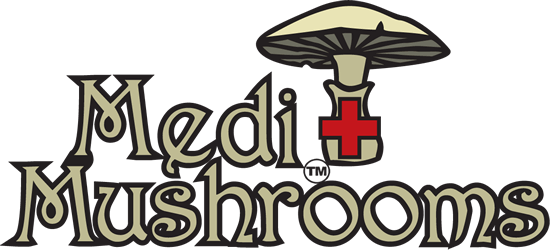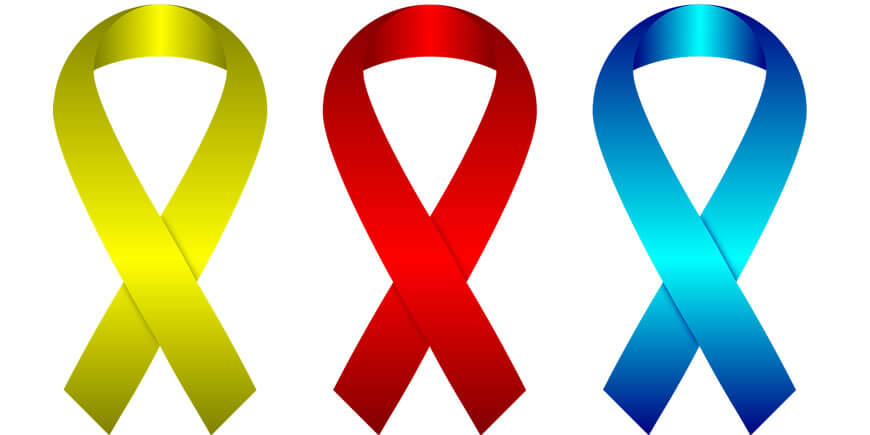*** ATTENTION U.S. CUSTOMERS ***
Please remember that there is a 15% Tariff (aka Duty & Import Tax) to be paid directly to U.S. Customs when your parcel arrives in the U.S.
*** IMPORTANT SHIPPING & DELIVERY NOTICE ***
Some international couriers continue to experience shipping delays.
We recommend you buy early and in bulk to avoid the impact of these delays.For 25+ years, we've been supporting a Healthy Body, Strong Spirit and Clear Mind!
Providing superior quality medicinal mushroom supplements
to customers in 74 countries around the world.Buy More & SAVE Big
- Tap for Navigation
- Dietary Supplements ▼
- » Dr Alla's Cordyceps
- » Dr Alla's Lion's Mane
- » Dr Alla's Maitake
- » Dr Alla's Reishi
- » Dr Alla's Shiitake
- » Testimonials
- Symptoms Chart
- Get Advice ▼
- » FAQ
- » Health Consultations
- Dr Alla's Insights ▼
- » Medical Conditions
- » Mushroom Properties
- » Research Info ►
- » » Medical Quotes
- » » Reference Works
- » » Mushrooms - Why Special?
- About ▼
- » Dr Alla's Story
- » Testimonials
- » Trade Enquiries
- » Contact
- Customer Info ▼
- » Access My Account
- » Track My Order
- Navigation
- Dietary Supplements ▼
- » Dr Alla's Cordyceps
- » Dr Alla's Lion's Mane
- » Dr Alla's Maitake
- » Dr Alla's Reishi
- » Dr Alla's Shiitake
- » Testimonials
- Symptoms Chart
- Get Advice ▼
- » FAQ
- » Health Consultations
- Dr Alla's Insights ▼
- » Medical Conditions
- » Mushroom Properties
- » Research Info ►
- » » Medical Quotes
- » » Reference Works
- » » Mushrooms - Why Special?
- About ▼
- » Dr Alla's Story
- » Testimonials
- » Trade Enquiries
- » Contact
- Customer Info ▼
- » Access My Account
- » Track My Order
Definition & General Information:
The Human Immunodeficiency Virus (HIV) causes Acquired Immune-Deficiency Syndrome (AIDS).
HIV compromises the immune system and makes it extremely difficult for the body to fight the organisms that cause this disease.
HIV is a sexually transmitted infection (STI).
AIDS is a chronic condition and it is potentially life-threatening.
HIV virus can be transmitted through:
- contact with semen or vaginal fluids
- anal or oral sex
- from mother to child during pregnancy, childbirth or breast-feeding
- through infected blood.
Just as it is very clear how one can get infected, it is just as clear how one cannot get HIV / AIDS.
Though HIV is a virus, it is not spread through insect bites, through the air or water.
People cannot be infected while shaking hands, hugging, kissing, sitting next to an infected person, holding hands, dancing, playing sports, etc.
So, what happens when the person gets infected?
The HIV virus specifically targets and destroys the CD4 T cells. These are the enormously important white blood cells that play a huge role in helping the human body fight the infection. The fewer CD4 T cells are in the blood, the weaker is the immune system and the person is battling to fight the disease.When the CD4 T cells count in the blood tests falls below 200 or there is a complication related to AIDS symptoms, the person is diagnosed with AIDS.
Symptoms:
The symptoms of HIV and AIDS vary from one infected person to another. These symptoms can also be different depending on the stage of the infection.
There are 3 stages of the HIV progression:
- Primary infection (Acute HIV)
- Clinical latent infection (Chronic HIV)
- Symptomatic HIV infection
Primary infection (Acute HIV)
After being infected, it takes just a few weeks for most people to start experiencing the first symptoms that can last for several weeks. These signs can be easily overlooked because they can be very mild and seem to be most familiar flu-like symptoms:- Headache
- Sore throat
- Painful mouth sores
- Swollen lymph glands, especially on the neck
- Rash
- Fever
- Muscle pain
- Joint pain
- Fatigue
Clinical latent infection (Chronic HIV)
During this stage the HIV virus remains in the infected white blood cells. Some people might have no symptoms, or any signs of the disease and others might have minor symptoms such as persistent swelling of lymph nodes.Generally, if the person does not receive the antiretroviral therapy, the Chronic HIV infection lasts for about 10 years and sometimes, even if the infected person is taking the treatment, the infection lasts for several decades. Unfortunately, some people suffer more severely than others when the HIV infection progresses much faster and more acutely.
Symptomatic HIV infection
After a few weeks of the initial infection, some of the flu-like symptoms would be gone and the disease progresses to AIDS.Now a new set of symptoms start creeping in alongside the old ones adding to the spectrum:
- Fever
- Nights sweats
- Weight loss
- Diarrhea
- Fatigue
- Oral yeast infection (thrush)
- Recurring infections
- Shingles (herpes zoster)
Progression of HIV infection to AIDS
Most people with HIV that undergo the rigorous antiviral treatments do not develop AIDS. In those infected people with HIV that do not take the drugs, HIV progresses into AIDS in about 10 years.At the stage when the HIV infection progresses into AIDS the person’s immune system is severely damaged. The mildest infection that would not cause much trouble for a person with healthy immune system, in this case can be a devastating one.
These are just some of the symptoms occurring in this stage:
- Recurring fever
- Soaking night sweats
- Unexplained and persistent fatigue
- Unusual lesions in the mouth / on the tongue
- Persistent white spots in the mouth / on the tongue
- Skin rashes or bumps
- Weight loss
- Chronic diarrhea
General Recommendations
Though there is no cure for HIV/AIDS, there are specific types of medications that can make a huge, life-saving difference to the infected person. These drugs can slow down the progression of the disease, prolong life, prevent secondary infections and the complications, improve the quality of life, thus reducing the number of deaths caused by AIDS.
If HIV is not treated, then it progresses into AIDS in about 10 years.
It is absolutely essential to take the antiretroviral therapy or ART and be in close contact with your medical professional.
Recommended Medicinal Mushrooms
When infected with HIV, the immune system is severely compromised.
Medicinal mushrooms tremendously boost the immune system, help fight the secondary infections, increase the energy level, help overcome the fatigue, improve the general wellbeing, and fight the side effects of the antiretroviral drugs such as nausea, vomiting or diarrhea.
A high dosage of each of the five MediMushrooms products is recommended:
Please do not hesitate to contact me and discuss your health issues or any of our MediMushrooms products.
I am here to help,
Dr Alla.
CONTACT INFO
021 227 9922 (NZ)
+64 21 227 9922sales@medimushrooms.co.nz
MS Teams: alla.kiroshka
We ship globally to 74 countries and locally to all regions of New Zealand. Local shipping destinations include Auckland, Bay of Plenty, Gisborne, Hawke's Bay, Manawatu-Whanganui, Northland, Taranaki, Waikato, and Wellington on the North Island. As well as Canterbury, Marlborough, Nelson, Otago, Southland, Tasman, and West Coast on the South Island.

Top NZ cities and towns we ship to include Alexandra, Arrowtown, Ashburton, Auckland City, Blenheim, Bluff, Cambridge, Christchurch, Cromwell, Dannevirke, Dargaville, Dunedin, Eltham, Feilding, Gisborne, Gore, Greymouth, Hamilton, Hastings, Havelock North, Hawera, Hibiscus Coast, Hokitika, Huntly, Invercargill, Kaikoura, Kaitaia, Kāpiti Coast, Katikati, Kawerau, Kerikeri, Levin, Lower Hutt, Manukau City, Marton, Masterton, Matamata, Morrinsville, Motueka, Napier, Nelson City, New Plymouth, Ngaruawahia, North Shore, Oamaru, Otaki, Palmerston North, Paraparaumu, Picton, Porirua, Queenstown, Rolleston, Rotorua, Stratford, Taupo, Tauranga, Te Awamutu, Te Puke, Thames, Timaru, Tokoroa, Upper Hutt, Waihi, Wanaka, Warkworth, Wellington City, Wellsford, Westport, Whakatane, Whanganui, Whangarei, Whitianga.
Copyright © 2004 - 2026 MediMushrooms International Ltd
DISCLAIMER: The information on this website has been researched, reviewed and presented with all due care.
Nevertheless, the content is provided for general education and information only and should not be relied upon in making,
or refraining from making, any decision. It is NOT intended to replace medical advice from a healthcare professional.
All users are urged to seek advice from a qualified healthcare professional for diagnosis, treatment and answers to their medical questions.
Use products as directed. If symptoms persist, please see your healthcare professional.Specific results expressed herein are not typical. Individual results will vary.


